Wake up and smell the coffee
The incompetence of the civilian government is something that Pakistanis live with every day.

Emmanuel, then White House chief of staff, always teetering on the verge of profanity, probably controlled himself to ask: “What do you mean you don’t know where he is?”. The US was spending $50 billion on intelligence “and you don’t know where the most wanted man in the history of the world is?”.
Let’s start by taking the position that the US intelligence community didn’t know where Osama bin Laden was at the time of this conversation. This would, of course, be despite the generous cooperation the Pakistani state had extended in the hunt for Geronimo until then.
All the US had been able to confirm by the time the Bush years drew down was that a lot of the $2 billion annual payout that the ISI received was used, minus commissions, to buy weapons and sustenance for terrorists. And possibly, as it turns out, to build a bungalow in Abbottabad with nice high walls on the outskirts of which cabbages and marijuana would one day grow.
That Bin Laden, like everyone else the US really wanted, was under house arrest in Pakistan had been apparent even to President Bush. All that stopped his administration from saying so publicly was that they weren’t sure which house.
This deep distrust led to a policy for drone attacks on supposedly sovereign territory, which ultimately ensured the success of the operation that killed Bin Laden: The Pakistanis would be informed after the goals had been achieved.
For the Big One, President Obama passed the information on himself.
At 1:30 am on May 2, about 20 minutes after the deed was done, this is how the incident was reported in one of Pakistan’s leading news outlets: “A helicopter crashed on PMA Kakul road in the wee hours of Monday, sources said. According to the sources, security forces cordoned off the area; meanwhile, relief activities were also kicked off soon after the incident.” “Relief activities”? No doubt the sources were military sources.
The world’s most wanted man could not be ‘in hiding’ in a garrison town, so close to the sensitive border with its greatest enemy. It had to be either complicity or incompetence, said the world’s media.
But what if it were both? The incompetence of the civilian government is something that Pakistanis live with every day. It would come as no surprise to those who live in Pakistan that it would have had little knowledge, and even less control, on matters such as building a house for Bin Laden.
The world assumes that terrorists in Pakistan are offered sanctuaries and even assistance and that this cannot happen without the consent of Pakistan’s most entrenched institution. Pakistani officials, however, deny all of this all the time. And it seems that citizens buy this, believing that whatever the state and the military do is in the national interest.
The position of the state isn’t going to change after the Bin Laden killing. The military has said that it will give a befitting response to India and demanded that America scale back its military presence in the country. That’s all it seems to have said. But the civilian might do a little rethink after what he’s seen. First, what kind of state cannot thwart such a blatant violation of sovereignty? And that too by a few choppers and a few dozen commandos?
There is an even more important consideration. Pakistan has told both the world and its own citizens that it is the greatest victim of terrorism: 30,000 lives have been lost. The world’s greatest terrorist, however, was apparently living comfortably on its soil. There are a range of Indian views on this. The unhinged think this is open season, so a good time to strike Navy SEAL-style and take out targets like Hafeez Saeed and Dawood Ibrahim.
The naive demand a painless, pleasant (in sum, absurd) handover of such people. And the pragmatic hope Bin Laden’s death will help Pakistan wake up and smell the coffee and realise what is actually in the ‘national interest’.
Published in The Express Tribune, May 7th, 2011.







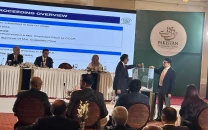
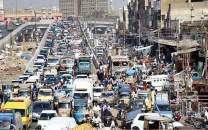
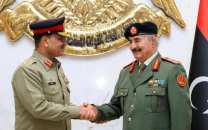

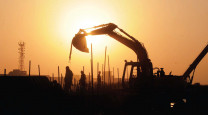
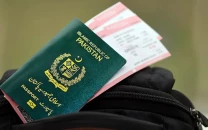




COMMENTS
Comments are moderated and generally will be posted if they are on-topic and not abusive.
For more information, please see our Comments FAQ